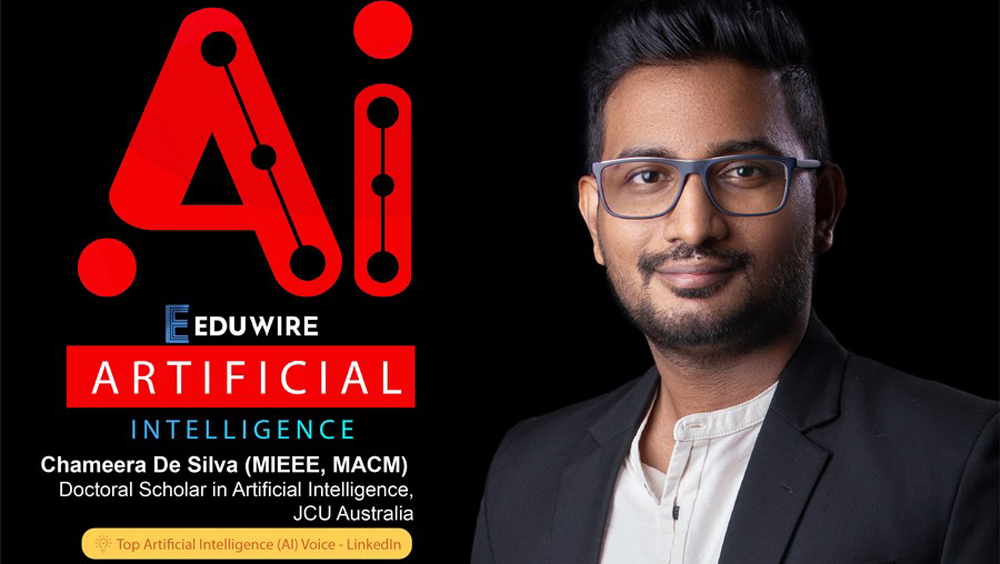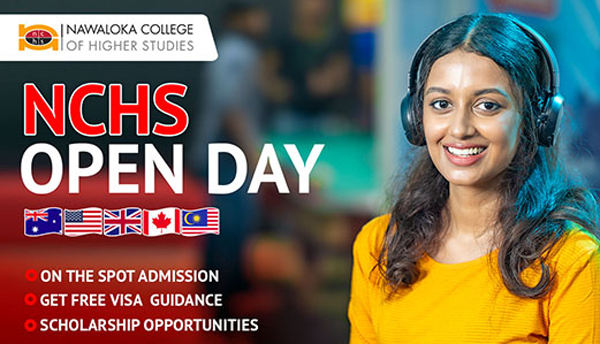Why Teacher Intelligence Will Always Matter More Than Artificial Intelligence?

Recently, I attended a conference where several tech companies promoted the idea that every student would soon have a personal laptop for daily use in school. Watching videos of Australian children walking into school with their laptop bags, I sensed I was witnessing the beginning of something significant. Although uncertain about the timeline, I convinced my school’s head to join the movement before the turn of the century. Our school had “gone 1:1.” The adoption varied greatly among schools, but there’s no doubt that the school experience of Gen Z is vastly different from my own Gen X education, largely due to the available technology.
One thing has remained constant in my work with faculty on effectively integrating classroom technology: teachers always brought more to the table in crafting the student learning experience than the technology itself. Teachers adapted their skills as new technologies emerged, occasionally transforming different aspects of student learning. This evolution continued with the recent wave of educators embracing learning technology for remote and hybrid learning during the height of the COVID-19 pandemic.
The Evolution of AI and Technology in Teaching
As technology has continuously evolved, teachers have drawn upon their wisdom, discernment, and expertise in forging connections with their students to craft curriculum and rethink pedagogy. The most successful uses of technology have happened when academic leaders and faculty focused on a highly curated set of technology resources, and “less is more” has certainly applied. For example, some schools have moved away from allowing teachers to choose the learning management system (LMS) they feel best meets their needs and toward the adoption of a single school or division-wide LMS. As it turned out, this switch also provided teachers with more opportunities for collaboration as well as the mental space to focus on developing the content of their course sites.
I have the same sense that school is about to change again in watching the emergence of generative AI. I’m not sure about the time to full adoption, but I’m positive it’s going to be exponentially faster than previous technological adoptions have been. In the Academy’s “AI Considerations for Academic Leaders” course, participants shared that they felt under tremendous pressure to “figure out” this powerful tool. Many said they believe generative AI has already become ubiquitous and would only continue to be so in the future lives and work of today’s students.
AI Won’t Replace Teachers. But It Could Help Them With Certain Tasks.
Who will teach these students what they need to know to make generative AI a resource while still developing their intellectual capacity? It will be their teachers and parents, not the AI itself. When social media emerged to become part of the landscape, we (educators) let social media teach students about social media for far too long. We need to do a better job this time around.
ERB President Tom Rochon wrote a compelling blog post about how writing instruction should evolve to leverage generative AI while still helping “teach students to write so they are able to formulate and communicate their thoughts.” It’s well worth a read for all educators, not just ELA faculty. Notably, nowhere in his post does Dr. Rochon posit the idea that educators will be less important in the future than they are now! What he addresses instead is a glimpse into the future of meaningful instruction.
What’s essential is that students grow confident in their ability to think critically and deeply – traits that teachers typically assess via writing. Will students who aren’t taught to use generative AI critically succumb to feeling, “My writing isn’t as good as AI-generated text, so why bother?” It’s never been more important to explain the why of every lesson to students and emphasize the importance of cognitive skill development over producing a final product.
Along with the call for teaching students about generative AI, there are also tremendous implications for how AI can support the professional work of teachers. When generative AI can assist teachers and academic leaders in more effectively accomplishing various tasks like grading, personalized instruction, and administrative management, what does this recaptured time empower teachers to do more of? In other words, generative AI isn’t going to teach or replace teachers. Teachers are going to use generative AI to better support student learning.
When Teacher Intelligence Trumps Artificial Intelligence
Let’s consider some areas in which teachers excel and how having access to artificial intelligence might further empower them.
Human Connection and Emotional Intelligence
One of the most crucial roles of a teacher is to foster a connection with their students. Research suggests that the human connection between teachers and students is critical in promoting student motivation and engagement. Leading a classroom is not just about content expertise in a subject matter but also teachers’ empathy, insights, and inspiration. Machines cannot match that.
AI tools can help provide personalized learning for a student but only when directed to do so by a skilled and empathetic teacher. AI cannot discern emotions beyond a coded response, and even a bot “trained” to be supportive will be limited when compared to a human teacher. When teachers leverage AI tools to fast-track their ability to provide personalized instruction in light of each student’s needs, that’s an empowered classroom.

Real-Time Adaptability
Teaching well has never been a one-size-fits-all approach. Teachers are flexible in adapting their approach to their students’ varying needs and learning styles, flexing their ability to read their students’ emotions, and respond accordingly with empathy and support. Unlike AI, teachers can observe their students’ progress in real-time, witnessing the smallest signals that a student needs support, noticing a furrowed brow long before that student has generated “output” for an AI tool to examine.
Teachers are also aware of the outer world impacting students’ ability to learn. Is it the night before the state semifinals? The day after a heart-breaking loss in double-overtime? Tech week for the musical performance? Teachers know when external factors are at play and can adjust their classrooms to new realities quickly. AI simply cannot match the adaptability of a human teacher to the emotional and developmental needs of students.
Trust and Ethics
Teaching is far more than imparting knowledge and developing skills; it’s also helping students become responsible, ethical members of society. Teachers promote trust, honesty, and integrity in the classroom and serve as role models for students to emulate. Thoughtful teachers help students grow their metacognitive skills and develop a growth mindset; these teachers truly inspire students to be their best selves.
Further, in specific relation to generative AI, teachers are essential in encouraging students to be critical consumers and thinkers not just about the results of their interactions with generative AI but also about the bias, inequity, and exploitation that might be a part of the tools they are using.
Yes, generative AI can be a valuable tool for teachers in supporting student learning, but it’s important to remember that it cannot replace human teachers. Teacher intelligence is far more effective in fostering human connections, providing real-time adaptability, and promoting critical thinking and creativity, emotional intelligence, trust, and ethics.
It’s crucial that we continue to invest in teacher development and provide all faculty with the resources and support they need to become better educators. Artificial intelligence serves as a support for educators, yet at the end of the day, teacher intelligence is still the driving force behind effective and meaningful learning.
Follow Me on LinkedIn
Chameera De Silva
Related News
6th Annual SLASSCOM Ingenuity Awards 2024 Honors Sri Lanka’s Leading Innovators
The SLASSCOM Ingenuity Awards 2024, held at the Shangri-La Hotel on June 19th, honored and celebrated Sri Lanka's most brilliant minds and…
Read MoreAustralia doubles foreign student visa fee in migration crackdown
The Australian Government announced on Monday that it had more than doubled the visa fee for international students. According to Reuters, the latest…
Read MoreExplainable Artificial Intelligence (XAI): A Reason to Believe?
Artificial Intelligence (AI) is revolutionizing industries from healthcare to finance, transforming how we live and work. Yet, despite its vast potential, AI…
Read MoreThe International Baccalaureate (IB) – A Pathway to Global Success
The International Baccalaureate (IB) programme is a globally recognised educational curriculum that prepares students for success in higher education and beyond. The…
Read MoreGrade 01 admission 2025 : Circulars issued
The relevant circular to admit students to Grade 01 for the year 2025 has been released. Sinhala & Tamil circular can be…
Read MoreCourses
-

IMC – Bachelor of Psychology
IMC Education Overview IMC Campus in partnership with Lincoln University College (LUC) Malaysia offers Bachelor of Psychology Degree right here in Sri… -

ANC – BA (Hons) International Business Management (Top-Up)
ANC Education Overview Designed in partnership with public and private business organizations, this program develops one’s ability to critically evaluate business models… -

IIT – BSc (Hons) Computer Science
IIT Campus Overview BSc (Hons) Computer Science provides a solid foundation and training regarding the fundamentals of the computer science field, along… -

APIIT – BSc (Hons) Cyber Security
APIIT Sri Lanka Overview Our BSc (Hons) Cyber Security award is designed to launch your future career in the protection of software… -

ICBS – BSC (Hons) Business Management with Marketing Management
ICBS Overview The BSc (Hons) Business Management with Marketing program, awarded by Queen Margaret University (QMU), is a highly regarded degree that… -

UTS – Diploma of Science
UTS College Sri Lanka Overview The Diploma of Science is designed to empower you to apply scientific thinking and analysis to important… -

CSA – Master of Architecture and Environmental Design
City School of Architecture Overview The Master of Architecture and Environmental Design Degree at CSA is awarded by the University of the… -

APIIT – BSc (Hons) International Business Management
APIIT Sri Lanka Overview Increasingly businesses are becoming more and more international. This requires business management professionals to have knowledge, skills and… -

IIT – BSc (Hons) Artificial Intelligence And Data Science
IIT Campus Overview The BSc (Hons) Artificial Intelligence and Data Science course is awarded by Robert Gordon University (RGU) in the UK… -

ICBS – International Degree Foundation in Business / IT
ICBS Overview The Scottish Qualification Authority (SQA) is a globally recognized organization dedicated to education and qualification development. SQA is responsible for… -

APIIT – BA (Hons) Finance and Business Enterprise
APIIT Sri Lanka Overview Finance and accounting are no longer just about taxation and the management of financial capital. This award will… -

APIIT – MBA General
APIIT Sri Lanka Overview The MBA is awarded by Staffordshire University, UK. This award is an advanced course of study in management… -

ANC – LLM in International Business & Commercial Law
ANC Education Overview This course is designed for graduates of law, business and finance in a legal or a corporate job role… -

AOD – BA (Hons) Fashion Design and Marketing
Academy of Design Overview The syllabus is from the UK’s Northumbria University, as one of their most revered flagship programmes and is… -

APIIT – MSc. Marketing Management
APIIT Sri Lanka Overview This MSc Marketing Management degree – awarded by Staffordshire University, UK is an advanced course of study in…
Newswire
-

Tharushi & Dilhani qualify for 2024 Olympic
ON: July 2, 2024 -

HR activist hounded by CID files FR Application
ON: July 2, 2024 -

India is investing heavily in its future
ON: July 2, 2024 -

Quetta woman pleads for ‘missing’ husband’s recovery
ON: July 2, 2024








